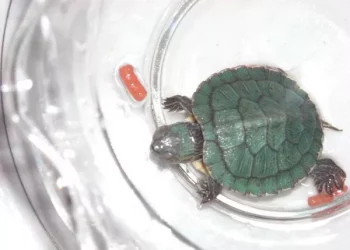The Aldabra tortoise, known for its impressive size and longevity, is one of the largest tortoise species in the world. Its diet, habitat, and general care require specific attention to ensure its health and well-being. One common question among tortoise enthusiasts and caretakers is whether Aldabra tortoises can eat spinach. This article will explore the dietary needs of Aldabra tortoises, examine the potential benefits and risks of feeding them spinach, and provide guidance on maintaining a balanced diet for these majestic reptiles.
Introduction to Aldabra Tortoises
Breed Characteristics
The Aldabra tortoise (Aldabrachelys gigantea) is a remarkable species native to the Aldabra Atoll in the Seychelles. It is distinguished by its impressive size, with adults often reaching lengths of up to 4 feet and weighing between 550 and 600 pounds. The Aldabra tortoise has a distinctive domed shell that provides protection from predators and environmental conditions.
Physical Features
Shell: The shell of the Aldabra tortoise is high-domed and can vary in color from dark brown to light tan. It is composed of bony plates covered in scutes, which are shed periodically.
Limbs and Head: The tortoise has sturdy, elephantine legs and a thick, leathery head. Its limbs are adapted for slow but steady movement across its environment.
Lifespan: Aldabra tortoises are known for their longevity, often living for over 100 years in the wild and even longer in captivity.
Habitat and Distribution
The Aldabra tortoise is native to the Aldabra Atoll, a coral atoll in the Indian Ocean. The atoll’s climate is characterized by high humidity, warm temperatures, and seasonal rainfall. The Aldabra tortoise is well-adapted to this environment, thriving in its natural habitat, which provides a diverse array of vegetation.
Environmental Adaptations
Temperature: Aldabra tortoises prefer warm temperatures and are ectothermic, meaning they rely on external heat sources to regulate their body temperature.
Rainfall: They are accustomed to the wet and dry seasons of their native environment, which influences their foraging behavior and diet.
Vegetation: Their habitat includes a variety of plant species, including grasses, shrubs, and leaves, which form the primary components of their diet.
Dietary Needs of Aldabra Tortoises
General Dietary Requirements
Aldabra tortoises are herbivores and primarily feed on a plant-based diet. Their diet in the wild consists of a wide range of vegetation, including grasses, leaves, and fruits. The dietary needs of Aldabra tortoises are influenced by their size, age, and activity level.
Key Nutrients
Fiber: High fiber content is essential for proper digestion and overall health. Grasses and fibrous plant material provide the necessary fiber for their diet.
Calcium: Calcium is crucial for shell and bone health. In the wild, Aldabra tortoises obtain calcium from a variety of plant sources.
Vitamins and Minerals: A balanced diet provides essential vitamins and minerals to support overall health and immune function.
Common Foods in Their Diet
In captivity, Aldabra tortoises are often fed a diet that replicates their natural food sources. Common foods include:
Grasses: Various types of grasses are a staple in their diet, providing necessary fiber and nutrients.
Leafy Greens: Greens such as dandelion leaves and hibiscus are commonly included.
Vegetables and Fruits: While fruits are occasionally offered, they should be provided in moderation due to their sugar content.
The Nutritional Profile of Spinach
Overview of Spinach
Spinach (Spinacia oleracea) is a leafy green vegetable known for its high nutritional value. It is rich in vitamins, minerals, and antioxidants, making it a popular choice for human diets. Spinach contains vitamins A, C, and K, as well as iron, calcium, and folate.
Nutritional Benefits
Vitamins: Spinach is a good source of vitamins A and C, which are important for immune function and overall health.
Minerals: It contains iron and calcium, which are essential for blood health and bone strength.
Antioxidants: Spinach is rich in antioxidants, which help protect cells from oxidative damage.
Potential Concerns for Tortoises
While spinach is nutritionally rich, it also contains certain compounds that may not be ideal for tortoises, particularly in large quantities.
See Also: Can Aldabra Tortoises Eat Fruit?
Oxalates
Spinach contains oxalates, which are compounds that can bind with calcium and reduce its absorption. Excessive oxalate consumption can lead to calcium deficiency, which is detrimental to tortoise health.
Impact on Digestive Health
The high water content and certain compounds in spinach may affect digestion in tortoises, potentially leading to digestive issues if fed in large quantities.
Feeding Spinach to Aldabra Tortoises
Benefits and Risks
Benefits
Nutritional Value: Spinach provides a range of vitamins and minerals that can be beneficial in small amounts.
Variety: Introducing a variety of vegetables can help prevent dietary monotony and encourage a more balanced intake of nutrients.
Risks
Calcium Absorption: Due to its high oxalate content, spinach can interfere with calcium absorption, leading to potential deficiencies.
Digestive Issues: Overconsumption of spinach may cause digestive upset in tortoises, including diarrhea or discomfort.
Recommended Guidelines
If you choose to offer spinach to Aldabra tortoises, it should be done with caution and moderation.
Moderation is Key
Frequency: Spinach should be offered as a supplement to their primary diet, not as a main component.
Portion Size: Provide small amounts of spinach along with a variety of other greens and plant material to ensure a balanced diet.
Alternative Options
Leafy Greens: Offer other leafy greens with lower oxalate levels, such as dandelion greens or collard greens, as a primary food source.
Variety: Incorporate a variety of plant-based foods to meet all nutritional needs without relying heavily on any single item.
Conclusion
Aldabra tortoises are majestic creatures with specific dietary needs that reflect their natural habitat and lifestyle. While spinach can offer nutritional benefits, its high oxalate content poses risks for calcium absorption and digestive health. Therefore, it is essential to provide spinach in moderation and as part of a varied diet.
A well-balanced diet for Aldabra tortoises should focus on high-fiber grasses, leafy greens with lower oxalate levels, and other appropriate plant materials. By understanding their dietary requirements and carefully managing their food intake, caretakers can ensure the health and well-being of these impressive reptiles.
In summary, Aldabra tortoises can eat spinach, but it should be done cautiously and in moderation. Providing a diverse diet that meets their nutritional needs while minimizing potential risks is key to their overall health and longevity.
Related Topics:


























